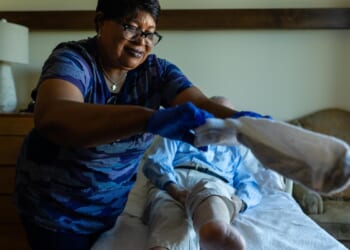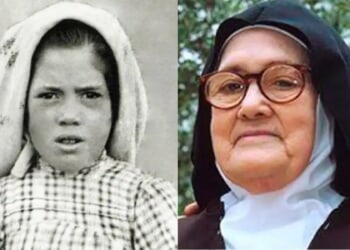
Voters in Bangor, Maine, have elected a convicted killer to the city’s governing body, more than two decades after she pleaded guilty to manslaughter in the brutal death of a Canadian tourist.
Angela Walker, who was convicted in 2003 under the name Angela Humphrey, won one of three open seats on the Bangor City Council in Tuesday’s municipal election.
Meet Angela Walker. She was just elected to Bangor, Maine City Council
She was previously convicted of manslaughter and sentenced to 10 years for kiIIing a tourist, allegedly because he called her a “racist” name.
He was found severely beaten and suffocated with sand stuffed… pic.twitter.com/5kQXvUL4RW
— Libs of TikTok (@libsoftiktok) November 6, 2025
According to official results, Walker received 2,231 votes, finishing third in a nine-candidate race. Democrats Susan Faloon and Daniel Carson also won council seats.
This Could Be the Most Important Video Gun Owners Watch All Year
All three successful candidates were endorsed by Food and Medicine, a progressive nonprofit based in the Bangor area, the Bangor Daily News reported.
Walker’s past, however, has drawn renewed public scrutiny following her election.
Court records show that in 2002, Walker pleaded guilty to manslaughter and perjury in the death of 47-year-old Derek Rogers, a Canadian tourist who was beaten and suffocated on Old Orchard Beach.
Prosecutors at the time described the killing as a violent and senseless act.
They said Rogers had encountered Walker, her brother Benjamin, his girlfriend, and a 13-year-old on the beach in July 2002.
Following a heated exchange, Walker shoved sand into Rogers’ nose and mouth, suffocating him.
At first, Walker tried to shift blame to her brother and his girlfriend.
But investigators determined that she was lying about her role in the crime.
“The indictment against Ms. Humphrey is stronger than against her brother,” Assistant Attorney General Fernand LaRochelle said at the time.
To avoid a prolonged trial that could have been complicated by the defendants accusing each other, prosecutors reached a plea agreement.
The state dropped a murder charge in exchange for Walker’s guilty plea to manslaughter.
She was sentenced to 10 years in prison.
According to Seacoastonline, Walker also pleaded guilty to perjury for giving false statements during the investigation.
At the time of the killing, she was already incarcerated for violating probation in an unrelated assault case.
Walker later claimed that she acted out of anger after Rogers made what she described as a racist remark about her Sioux heritage.
Prosecutors did not dispute that words were exchanged but maintained that the killing was a disproportionate and violent response.
Walker’s election marks her first entry into public office since her release from prison.
America is so broken. Voters in Maine elected Angela Walker, a violent murderer, as a new city councilor.
The glittering pinnacle of progressive enlightenment.https://t.co/SBSZWzBh9C pic.twitter.com/Onxq5AAMSq— 𝖕Ⲁȥ (@_p4z_) November 6, 2025
Her campaign focused on housing, public health, and community engagement, issues she said were central to improving life in Bangor.
Her victory has prompted mixed reactions among Bangor residents, with some calling it a sign of redemption and others expressing disbelief that someone with a homicide conviction could now hold public office.
Maine law does not prohibit individuals with felony convictions from running for or holding local elected positions once they have completed their sentence.
Walker’s election adds to a growing number of cases nationwide in which formerly incarcerated individuals have sought and won public office, arguing that their experiences provide valuable perspectives on criminal justice and social reform.
For now, Walker is set to begin her term on the Bangor City Council as one of nine members.
Her swearing-in is expected later this month.
His death, once described by prosecutors as an act of “senseless violence,” remains a painful memory for those who remember the 2002 case that shocked coastal Maine.


![Scott Bessent Explains The Big Picture Everyone is Missing During the Shutdown [WATCH]](https://www.right2024.com/wp-content/uploads/2025/11/Scott-Bessent-Explains-The-Big-Picture-Everyone-is-Missing-During-350x250.jpg)






!['This is Just the Beginning... if People Don't Wake Up...' [WATCH]](https://www.right2024.com/wp-content/uploads/2025/09/This-is-Just-the-Beginning-if-People-Dont-Wake-Up-350x250.jpg)






